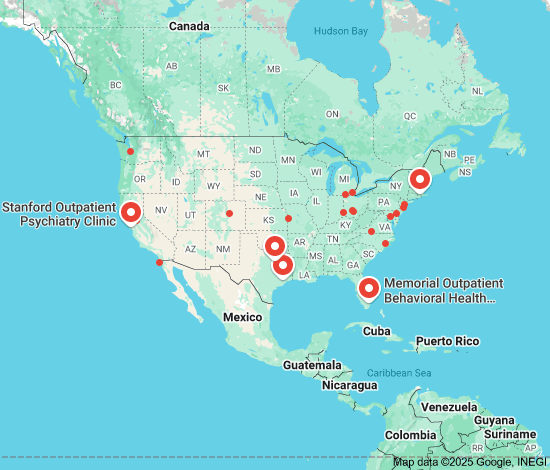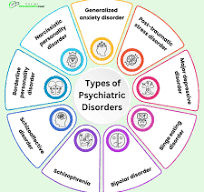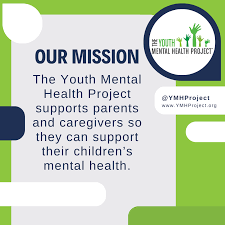Outpatient Psychiatry: Understanding the Benefits
Outpatient psychiatry services play a crucial role in providing mental health support to individuals in a less restrictive environment compared to inpatient care. Outpatient psychiatry allows patients to receive treatment while continuing with their daily lives, maintaining their independence and routines.
Benefits of Outpatient Psychiatry:
- Flexibility: Outpatient psychiatry offers flexible appointment scheduling, allowing individuals to seek treatment at convenient times that fit their schedules.
- Continuity of Care: Patients can establish long-term relationships with their psychiatrists, ensuring consistent and personalized care tailored to their specific needs.
- Community Support: Outpatient services often involve family members and support networks in the treatment process, fostering a sense of community and understanding.
- Integration into Daily Life: By receiving treatment on an outpatient basis, individuals can apply therapeutic strategies and coping mechanisms directly to their daily challenges and environments.
- Cost-Effective: Outpatient care is generally more cost-effective than inpatient treatment, making mental health services more accessible to a broader range of individuals.
In outpatient psychiatry, patients may participate in individual therapy sessions, group therapy, medication management, and other forms of psychotherapy depending on their needs. Psychiatrists work closely with patients to develop personalized treatment plans aimed at improving mental well-being and overall quality of life.
If you or a loved one are seeking mental health support, consider exploring the benefits of outpatient psychiatry. With its focus on flexibility, continuity of care, community support, integration into daily life, and cost-effectiveness, outpatient psychiatry offers a valuable resource for those navigating mental health challenges.
Understanding Outpatient Psychiatry: Answers to 9 Common Questions
- What is outpatient psychiatry?
- How does outpatient psychiatry differ from inpatient psychiatry?
- What services are typically offered in outpatient psychiatry?
- How often do I need to attend appointments in outpatient psychiatry?
- Is outpatient psychiatry covered by insurance?
- Can I choose my psychiatrist in outpatient care?
- What should I expect during my first appointment with an outpatient psychiatrist?
- Are there support groups available through outpatient psychiatry programs?
- How can I best prepare for my outpatient psychiatry appointments?
What is outpatient psychiatry?
Outpatient psychiatry refers to mental health services provided to individuals on an outpatient basis, meaning that patients receive treatment and support while continuing to live at home and engage in their daily activities. In outpatient psychiatry, individuals visit a psychiatrist or mental health professional at scheduled appointments to address their mental health concerns, receive therapy, medication management, and other forms of treatment. This approach allows for greater flexibility, continuity of care, and integration of therapeutic strategies into everyday life, making mental health support more accessible and tailored to the individual’s needs.
How does outpatient psychiatry differ from inpatient psychiatry?
Outpatient psychiatry differs from inpatient psychiatry in terms of the level of care and setting provided to individuals seeking mental health treatment. In outpatient psychiatry, patients attend appointments at a mental health clinic or therapist’s office and return home afterward, allowing them to maintain their daily routines and independence. This form of care is suitable for individuals who do not require round-the-clock monitoring or intensive intervention. On the other hand, inpatient psychiatry involves admission to a psychiatric facility for more intensive treatment, often for individuals experiencing severe mental health crises or requiring close supervision and support. Inpatient care offers 24/7 monitoring, structured therapy programs, and a controlled environment to ensure safety and stabilization. The choice between outpatient and inpatient psychiatry depends on the individual’s needs, severity of symptoms, and level of support required for effective treatment.
What services are typically offered in outpatient psychiatry?
In outpatient psychiatry, a range of services is typically offered to address individuals’ mental health needs. These services may include individual therapy sessions where patients work one-on-one with a psychiatrist or therapist to explore their thoughts, emotions, and behaviors. Group therapy sessions may also be available, providing opportunities for individuals to connect with others facing similar challenges and learn from shared experiences. Medication management is another common service offered in outpatient psychiatry, where psychiatrists carefully monitor and adjust medications to optimize treatment outcomes. Additionally, psychoeducation, crisis intervention, and support in developing coping skills and strategies for managing mental health symptoms are often part of the comprehensive care provided in outpatient settings.
How often do I need to attend appointments in outpatient psychiatry?
In outpatient psychiatry, the frequency of appointments typically varies based on individual needs and treatment plans. Psychiatrists may recommend weekly, bi-weekly, or monthly appointments, depending on the severity of the condition, progress made, and ongoing support required. The goal is to provide consistent care and monitoring while allowing patients to maintain their daily routines and responsibilities. Open communication with your psychiatrist about your progress, concerns, and any changes in symptoms can help determine the most appropriate appointment schedule for your mental health needs.
Is outpatient psychiatry covered by insurance?
Outpatient psychiatry services are often covered by insurance plans, but coverage may vary depending on the specific insurance provider and policy. It is important for individuals seeking outpatient psychiatry to check with their insurance company to understand the extent of coverage available for mental health services. Many insurance plans offer some level of coverage for outpatient psychiatric care, including therapy sessions, medication management, and other treatment modalities. By verifying insurance coverage in advance, individuals can better plan for and access the mental health support they need while minimizing out-of-pocket expenses.
Can I choose my psychiatrist in outpatient care?
In outpatient psychiatry, patients often have the opportunity to choose their psychiatrist based on their preferences and needs. While availability and insurance coverage may play a role in the selection process, many outpatient mental health facilities strive to accommodate patient requests for specific psychiatrists whenever possible. Building a strong therapeutic relationship with a psychiatrist is crucial for effective treatment, as it fosters trust, open communication, and collaboration in addressing mental health concerns. Patients are encouraged to discuss their preferences with the facility or provider to explore options for selecting a psychiatrist who aligns with their individual goals and comfort level.
What should I expect during my first appointment with an outpatient psychiatrist?
During your first appointment with an outpatient psychiatrist, you can expect a comprehensive evaluation process aimed at understanding your mental health concerns, history, and goals for treatment. The psychiatrist will likely ask you about your symptoms, medical history, current medications, and any previous mental health treatments. They may also inquire about your lifestyle, stressors, and support system to gain a holistic view of your well-being. Additionally, the psychiatrist may discuss treatment options with you, which could include therapy, medication management, or other interventions tailored to your needs. Overall, the first appointment serves as an opportunity for you to establish a collaborative relationship with the psychiatrist and begin working towards improving your mental health and well-being.
Are there support groups available through outpatient psychiatry programs?
Support groups are often an integral component of outpatient psychiatry programs, offering individuals a valuable opportunity to connect with others facing similar challenges and experiences. These groups provide a supportive environment where participants can share their thoughts, feelings, and insights while receiving encouragement and understanding from peers. Support groups within outpatient psychiatry programs can foster a sense of community, reduce feelings of isolation, and provide additional resources for coping strategies and emotional support. Participating in support groups can complement individual therapy sessions and contribute to overall mental well-being and recovery journey.
How can I best prepare for my outpatient psychiatry appointments?
Preparing for outpatient psychiatry appointments is essential to make the most out of your sessions and enhance the effectiveness of your treatment. One of the best ways to prepare is to reflect on your thoughts, feelings, and experiences since your last appointment. Consider keeping a journal or notes to track any changes, challenges, or progress you have noticed. It can also be helpful to jot down any specific topics or questions you want to discuss with your psychiatrist during the upcoming appointment. Additionally, ensure that you bring any relevant information or updates about your medications, symptoms, or life events that may impact your mental health. By actively engaging in the preparation process, you can optimize the time spent with your psychiatrist and work together towards achieving your mental health goals.




